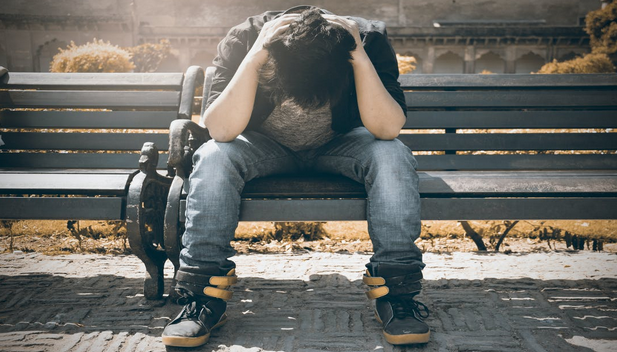Learn the difference between anxiety and PTSD and know your treatment options
By Ruth Mendelson, MSW, LCSW

Confused, scared, helpless.
These are often some of the common feelings associated with Post-traumatic Stress Disorder (PTSD). The American Psychological Association (APA) defines PTSD as an anxiety problem that develops in some people after extremely traumatizing events such as combat, crime, an accident, or a natural disaster.
It is possible that someone with PTSD may relive the trauma through intrusive thoughts, nightmares, flashbacks, and/or anything that reminds them of the trauma like a song or a smell or sound. People experiencing these types of feelings may do anything possible to avoid reminders of the trauma. It is also possible and common to experience anxious feelings at a level of intensity they never had prior to the trauma.
Most people witness and/or experience serious illness, accidents, assaults, and/or various adverse life events that are traumatic. Usually, with time, the pain and grief decrease, and life can return to some form of “normal.” Most people manage to process and deal with these types of painful and traumatizing events over time and are able to recover from the experiences with the proper support.

PTSD vs Everyday Anxiety
PTSD is a serious and potentially debilitating condition. PTSD symptoms may include:
- Intrusive distressing memories
- Flashbacks, nightmares, and difficulty sleeping
- Distress and/or avoidance related to reminders of the trauma
- Inability or difficulty in remembering a vital aspect of the trauma
- Ongoing and/or exaggerated negative beliefs about the self or others or the world
- Persistent negative emotions or inability to experience positive emotions
- Irritability, anger, reckless or self-destructive behavior
- Hypervigilance, exaggerated startle responses
If these symptoms are present for over a month and are causing significant distress or impact on functioning, it is possible that a person is experiencing PTSD. It is a diagnosis that is more prevalent among females and might have a delayed onset, it is possible that it may start years after a trauma occurred.
While being aware of PTSD symptoms, it is also important to understand everyday anxiety and stress in order to help differentiate between the two.
Everyday anxiety and stress symptoms related to trauma:
- Frightening thoughts/images, difficulty falling asleep and/or concentrating, feeling agitated for days/weeks after a traumatic event
- Wanting to spend time alone after witnessing a death or loss of a loved one, staying away from reminders of that person, wanting to avoid spending time with family and/or friends immediately after the event
- Feeling scared, angry, agitated after losing valued possessions in a disaster or accident
The key difference between common anxiety and stress after a trauma and PTSD symptoms is the length of time one experiences the symptoms, how chronic they are, and how debilitating the symptoms are or become.
PTSD Treatment
June is PTSD awareness month. It is very possible someone you know has a PTSD diagnosis or has experienced PTSD at some point in their life. Learning and knowing about PTSD can be beneficial in creating safe and nurturing environments for people experiencing deep pain and feelings related to their experiences with trauma. Raising awareness about PTSD can help people who are suffering feel more comfortable speaking up, seeking treatment, and/or destigmatizing the diagnosis.
If the symptoms above resonate for you and you recognize a persistent interference with daily functioning for longer than a month, it is a good idea to seek professional help. Many people who seek treatment for PTSD see significant improvements and enjoy a better quality of life. It’s important to note that treatment can occur during ongoing trauma, it does not have to be after the traumatic event.
If you are concerned about PTSD for you or for someone you care about, please reach out. A licensed therapist or counselor can support you with your concerns.
Ruth enjoys spending time with her family, friends, and dog. She loves to cook, spend time outdoors and go to the beach (even when it’s cold outside).
Check out Ruth’s professional bio here!
EWC has locations in Manalapan and Shrewsbury, NJ, and accepts a variety of insurances.
Email Us: info@exceptionalwellnesscounseling.com
Call Now: (908) 415-2042
Next Steps & Resources
- Are you ready to take your first step? Reach out to us.
- Do you feel that you or your child or teen may benefit from counseling during this time? Take the first step.
- Interested in online counseling? Learn more.
- Learn more about getting involved in raising PTSD Awareness
- Mental Health and PTSD

